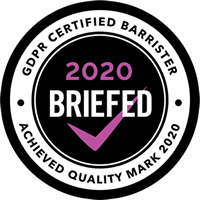
SUFFICIENT CONNECTIONS? ACCESSING THE COURT’S SCHEME JURISDICTION UNDER PART 26 CA 2006
10th October 2019
Creditor schemes of arrangement – Michael Todd QC and Andrew Blake consider whether the court will sanction a scheme where a company has been incorporated in England & Wales solely for the purpose of engaging the scheme jurisdiction under Part 26 CA 2006
Schemes of arrangement under Part 26 CA 2006 have proved to be a popular and useful tool for companies or groups wishing to undertake a restructuring: provided, that is, if those companies or groups are able to take advantage of the statutory provisions.
The English courts have consistently exercised the creditors’ scheme jurisdiction in relation to companies liable to be wound up under Part V IA 1986, where those companies have a ‘sufficient connection’ with England and Wales: Re Drax Holdings Ltd [2003] EWHC 2743 (Ch). Thus, Noble Group Ltd, an unregistered company incorporated in Bermuda, was permitted to take the benefit of the scheme jurisdiction and to have its scheme sanctioned by the courts of England and Wales: Re Noble Group Ltd [2018] EWHC 3092 (Ch) (see FC Case Feature 7 June 2019).
Insufficient connection
What of those companies which wish to use the scheme jurisdiction under Part 26 but cannot satisfy the ‘sufficient connection’ requirement?
In other jurisdictions (eg the Cayman Islands) company law statutes contain ‘continuation provisions’, permitting foreign-incorporated companies to register under and to be ‘continued’ as if incorporated under those statutes. Even then those continuation provisions expressly require migrating companies to be solvent. English company law contains no such provisions.
It may be that a company seeking to restructure might seek to persuade the court in the jurisdiction in which it was incorporated that that court has (and could, effectively, exercise) the jurisdiction conferred by Part 26 to sanction a scheme of arrangement between it and its creditors: UBS AG New York v Fairfield Sentry (in liquidation) [2019] UKPC 20 (see FC Case Feature 16 August 2019).
However, it appears that there is an easier answer for those who are, perhaps, more risk averse. The answer, according to Norris J in Re NN2 NewCo Ltd [2019] EWHC 1917 (Ch), is for a company seeking to restructure:
(a) to form an English company;
(b) to arrange for obligations to its creditors to be assumed by that English company, jointly with another company or companies within the group; and
(c) to apply in the name of that English company to the court under Part 26 for a scheme of arrangement between the English company and its newly acquired creditors.
Re NN2 NewCo Ltd
The Nyrstar group was a global business which conducted its activities through operating companies in Europe, the US, Canada and Australia. The parent company of the group, Nyrstar NV (NNV), was incorporated in Belgium with its corporate offices in Switzerland. Its direct subsidiary, Nyrstar Netherlands (Holdings) BV (NNH), a Dutch company, acted as the holding company for most of the operating subsidiaries.
The group’s trading position deteriorated, and, following negotiations with creditors, a capital and debt restructuring was proposed. An integral part of the restructuring was the incorporation in England of NN2 NewCo Ltd (NN2) to promote a scheme of arrangement (with that company being inserted as an intermediate holding company in the corporate structure).
NN2, being a company incorporated in England and Wales, was, of course, ‘liable’ to be wound up by the court. But could its incorporation for the purposes of facilitating a scheme of arrangement be regarded as “abusive forum shopping”? Relying on the decision of Snowden J in Re Noble (at paras 95-96), and the observations of Newey J in Re Codere Finance (UK) Ltd [2015] EWHC 3778 (Ch) (at para 18), Norris J found that it could not.
Similarly, the voluntary assumption, by NN2, of joint and several liability to existing creditors of group companies in order to facilitate the scheme was not “in any sense ‘abusive’ of the jurisdiction”. That mechanism had previously been employed: Re AI Scheme Ltd [2015] EWHC 1233 (Ch); Re Codere.
Further, the incorporation of NN2 was a convenient, but not a necessary, mechanism to invoke the scheme jurisdiction of the English court. By changing the governing law of existing notes and having regard to the original governing law of existing bonds, a ‘sufficient connection’ with this jurisdiction was established. NNV and NNH could, therefore, themselves have promoted the scheme: Re Vietnam Shipbuilding Industry Groups [2013] EWHC 2476 (Ch) (at para 9) and Re Public Joint-Stock Company Commercial Bank “Privatbank” [2015] EWHC 3299 (Ch) (at paras 16-19).
Re AI Scheme Ltd
A similar restructuring was proposed in Re AI Scheme Ltd [2015] EWHC 2038 (Ch). An English company, Affinion International Ltd (Affinion), provided, among other services, insurance cover for fraudulent use of lost or stolen credit cards (fraud insurance cover), in respect of which it was, potentially, subject to mis-selling claims. The FCA required Affinion to establish a simple, quick and effective redress procedure, which Affinion sought to do by means of a scheme under Part 26.
However, Affinion could not, itself, enter into a scheme of arrangement because that would risk triggering an event of default under its financing documents thereby accelerating its debts, which otherwise were capable of being serviced.
Accordingly, Affinion established an ‘orphan company’ (ie one not in its ownership), AI Scheme Ltd (AI Scheme). That company assumed the role of primary obligor, along with Affinion and its business partners, in relation to all of the claims of all potential mis-selling claimants. The scheme, promoted by AI Scheme, provided for direct redress by mis-selling claimants and for the release of claims against Affinion and its business partners, and as between them.
At the sanction hearing, Norris J considered whether there was any blot on the scheme. He found that, plainly, there was not. The FCA had been intimately involved in the preparation and negotiation of the scheme, and the FCA’s view, from a consumer standpoint and applying principles of fair dealing, was that the scheme was an appropriate method of providing the necessary redress.
The court received letters of objection to the scheme. However, no point appears to have been taken to the effect that AI Scheme: (a) was a newly incorporated company; (b) was not an original debtor; and (c) had voluntarily assumed the obligations which were the subject of the scheme for the sole purpose of enabling those obligations to be ‘schemed’, without triggering an event of default by Affinion.
Nobody appeared at the sanction hearing to oppose the scheme.
Re Codere Finance
In Re Codere Finance, a Spanish company, Codere SA, was the ultimate parent of a group of companies that carried on business in Latin America, Italy and Spain. Financing for the group had been provided by, among other things, the issue of notes by Codere Finance (Luxembourg) SA (Codere Finance), a Luxembourg incorporated subsidiary of Codere SA. The notes were governed by New York law, guaranteed by Codere SA (and other group companies) and subject to an English law intercreditor agreement.
The group was unable to meet all its debts. The use of restructuring mechanisms available in jurisdictions other than England and Wales was unattractive because they involved some form of insolvency proceeding. That could have put at risk licences on which the group depended and so diminish its value.
Accordingly, Codere Finance (UK) Ltd (Codere UK) was established by Codere SA. At the direction of Codere SA, and with the agreement of more than 97% of the noteholders, Codere UK agreed to assume a primary, joint and several obligation in respect of each of Codere Finance’s obligations under the notes.
The restructuring that the scheme was designed to achieve was complex. It related both to the obligations under the notes and to the structure of the group.
At the convening hearing, Nugee J expressed a concern that this seemed to him, “at first blush, to be quite an extreme form of forum shopping, in which the restructuring is brought in the UK purely by incorporating a company to take on very large liabilities”.
Having heard further submissions on that issue, at the sanction hearing, Newey J was satisfied that the concern Nugee J “understandably expressed” should not deter the court from sanctioning the scheme.
The scheme related to an English company which had its centre of main interests in England; neither the Recast Insolvency Regulation ((EU) 2015/848) nor the Recast Judgments Regulation ((EU) 1215/2012) presented any obstacle to sanction; 22% by value of scheme creditors were domiciled in England; and the scheme was likely to be effective in other relevant jurisdictions.
Further, the group had other connections with the jurisdiction: the intercreditor agreement, executed in 2005, was (as noted above) governed by English law; a significant percentage of the noteholders were domiciled in England; some 97% of the noteholders by value had by then submitted to the jurisdiction of the English court; the note trustee and security trustee had, since the notes were issued, performed their functions from offices in London; and other relevant documents (including, for example, lock-up agreements) were also governed by English law.
Newey J observed that the authorities disclosed that, over recent years, the English courts had become comfortable with exercising the scheme jurisdiction in relation to companies which have not had longstanding connections with this jurisdiction. In that regard he referred in particular to the decision of Norris J in Re AI Scheme.
Comment
While Newey J’s observation is certainly correct, in few of the cases had a company been incorporated in England and Wales solely for the purpose of engaging the scheme jurisdiction under Part 26. That had been the case in Re AI Scheme, but in that case, as in Re Codere, no creditors had appeared to oppose the scheme on that ground.
It is, of course, correct (as the judge observed) that, in a sense, what was done in both Re AI Scheme and Re Codere was forum shopping. But there were differences. The original debtor in Re AI Scheme (Affinion) was subject to the court’s jurisdiction whereas, in Re Codere, Codere Finance was not. In Re AI Scheme the scheme company was created using an English incorporated company because Affion could not undertake the scheme without the risk of incurring significant harm by acceleration of its indebtedness. Re Codere went one step further; it was concerned with a group of foreign unregistered companies which incorporated an English company purely for the purpose of using the scheme jurisdiction, in that case so as to preserve the group’s licences. However, in Re Codere, the group had significant connections with this jurisdiction.
In Re NN2 NewCo, as Norris J pointed out, the incorporation of NN2 was a convenient, but not a necessary, mechanism by which to invoke the scheme jurisdiction of the English court because, as seen above, a ‘significant connection’ with this jurisdiction had been established by changing the governing law of existing notes and having regard to the original governing law of existing bonds. As such, NNV and NNH could themselves have promoted the scheme.
What these cases disclose is an ever-increasing willingness of the courts in this jurisdiction to permit foreign companies to take the benefit of our scheme jurisdiction.
That can be seen from observations made by Snowden J in Re Noble, in relation to the ‘sufficient connection’ requirement. He observed (at para 95) that a company is generally free to choose where it carries on its activities and administers its interests, that such location is not immutable and that a company may change its centre of main interests (COMI) for a self-serving purpose: Shierson v Vlieland-Boddy [2005] EWCA Civ 974.
More recently, in Re Syncreon Group BV [2019] EWHC 2412 (Ch), the court sanctioned schemes of arrangement between a Dutch company, Syncreon Group BV (Syncreon Group), Syncreon Automative (UK) Ltd (Syncreon UK) and their respective creditors.
The schemes related to debts owed under a Parent Credit Facility (PCF), and notes owed under a Notes Indenture. Syncreon Group was the principal borrower and the principal note issuer, and Syncreon UK was one of the guarantors of both the PCF and the notes.
Syncreon UK was, of course, subject to the court’s jurisdiction. Syncreon Group relied on changes made in July 2019 to the notes and the PCF, under which the documents became governed by English law and there was submission to the jurisdiction of the English courts. That recent change to English law enabled Falk J to be satisfied that there was a sufficient connection with the jurisdiction, and, therefore, that the court should in principle exercise its jurisdiction.
The judge noted further in that context that (a) the Syncreon Group scheme was inter-conditional with the Syncreon UK scheme, which clearly had a close connection with the UK; (b) by entering into a restructuring support agreement over 95% of creditors had submitted to the jurisdiction; and (c) use of the English jurisdiction and the scheme process was regarded as the only viable route for restructuring the scheme companies on a going concern basis.
In Re Noble (unlike in Re AI Scheme, Re Codere and Re NN2 NewCo), the mechanism of incorporating a company solely for the purpose of ‘creating jurisdiction’ of the English court was not in issue. Noble Group Ltd was able to satisfy the court that it had a sufficient connection with England.
As Snowden J observed, in Re Noble, at para 96:
“In the context of a scheme, whilst the English Court will be astute to detect a COMI-shift performed for illegitimate and abusive reasons, it is possible that a company might legitimately seek the assistance of the Court with the support of, and in order to achieve the best result for, its creditors.”
It is, however, noteworthy that, in each of those cases, the judge was keen to emphasise the extent of the connection between the scheme company and this jurisdiction. In a case in which there is no sufficient connection with the UK, the question must inevitably arise as to whether the court would sanction a scheme where the scheme company is an English company incorporated solely for the purpose of seeking to engage the scheme jurisdiction under Part 26, if such scheme had not received the overwhelming approval of creditors, and was opposed? On current form, the answer may well be yes.
This case feature was first published in FromCounsel‘s Corporate Briefing on 23 September 2019.



